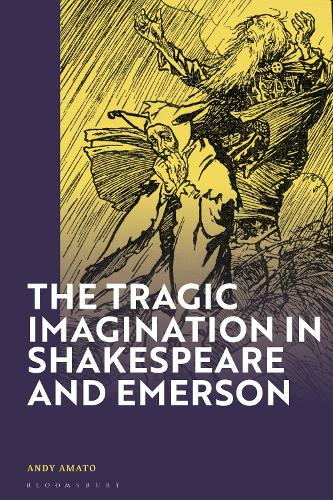
The Tragic Imagination in Shakespeare and Emerson
(Paperback)
Available Formats
Publishing Details
The Tragic Imagination in Shakespeare and Emerson
By (Author) Andy Amato
Bloomsbury Publishing PLC
Bloomsbury Academic
30th October 2025
United Kingdom
Classifications
Professional and Scholarly
Non Fiction
Literary theory
Physical Properties
Paperback
224
Width 156mm, Height 234mm
Description
What is the tragic imagination And what role does it play in the works of William Shakespeare and Ralph Waldo Emerson Explaining the tragic imagination as a creative faculty employed to answer the perennial Riddle of the Sphinx a theory of the world that advances human freedom and dignity in the face of historical injustice, cruelty and violence Andy Amato seeks to recover and rehabilitate this concept by revealing its significance to both key works of philosophy and literature and our contemporary world.
This book begins with a close and careful reading of Emersons first major work, Nature, in conversation with nineteenth and 20thcentury continental philosophy, critical theory and post-structuralism. Uncovering neglected elements of Emersons philosophy, beyond his reputation as the philosopher of cheer, this book explores how Emersonian transcendentalism affirms rather than denies the tragic sense of life tragic idealism and makes a substantial contribution to philosophys perpetual endeavour to solve the Riddle.
In the second part of the book, Amato then employs Emersons theoretical lens to interpret Shakespeares tragedy, King Lear. In doing so, he innovatively reframes the central themes of suffering, vision, nature, nothing, foolishness and silence toward achieving liberation.
By pairing these two giants of literature and philosophy, The Tragic Imagination in Shakespeare and Emerson not only offers fresh interpretations of Nature and King Lear, but also makes the case for the renewed deployment of tragic imagination, in creative redress, to our current social-political situation.
Author Bio
Andy Amato is Professor of Philosophy at the University of Texas at Dallas, USA. He is author of The Ethical Imagination in Shakespeare and Heidegger (Bloomsbury, 2019).
